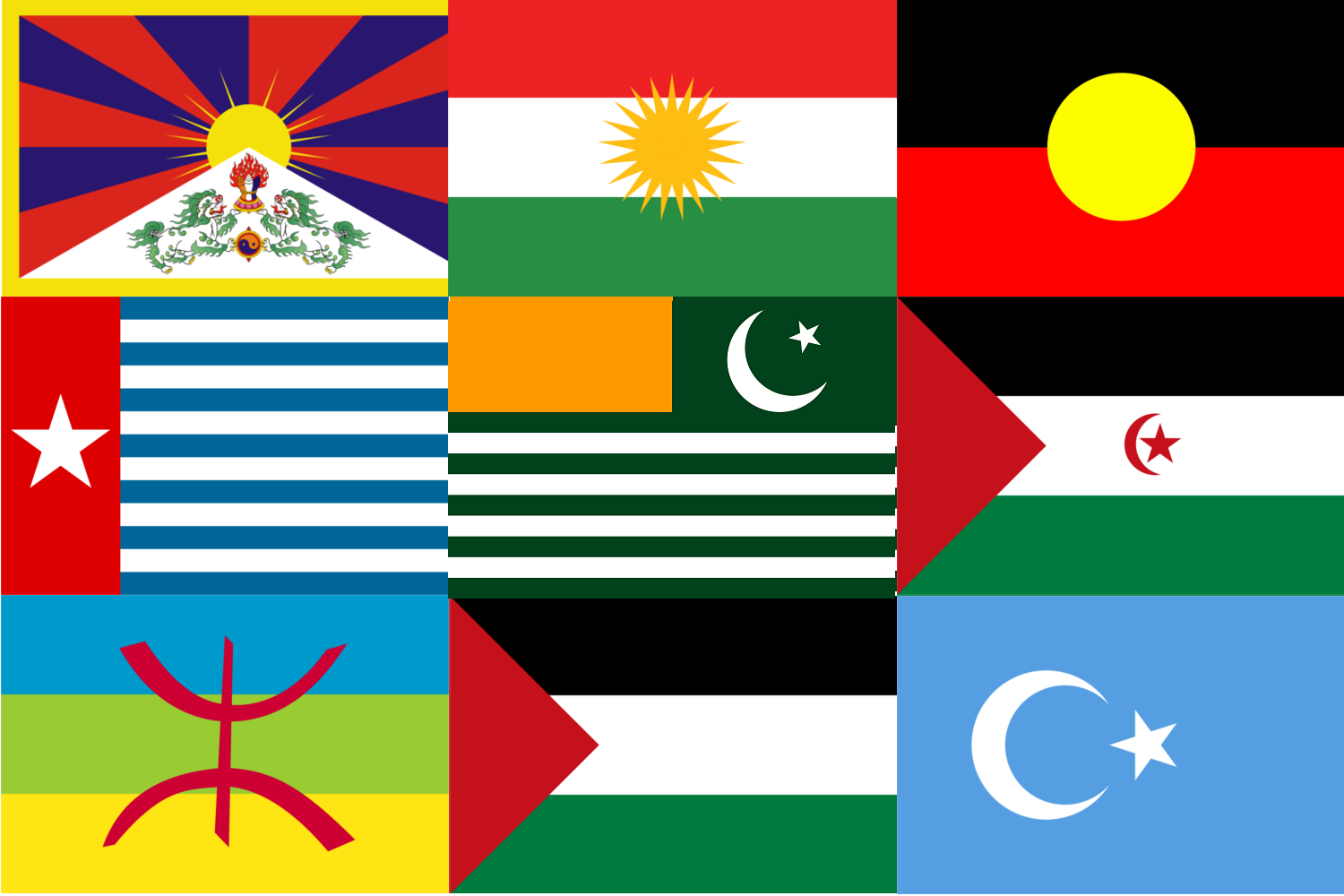Peoples Denied Self-determination Converge

Peoples under occupation and otherwise denied self-determination have remain the most-intractable human rights cases to resolve since the founding of the United Nations. The UN Charter affirms human rights as one of its three cardinal pillars, and the human rights-implementation principles self-determination and nondiscrimination are the two explicitly in the Charter. Nonetheless, despite laudable victories over traditional colonization across Africa, apartheid in South Africa, and the latter independence of Namibia and East Timor, peoples still remain under foreign occupation and alien domination, notably Cypriots, Kashmiris, Kurds, Palestinians, Puerto Ricans, Tibetans, Uyghurs and the peoples of Nuba Mountains and Western Sahara.
While the independence struggles of each of these peoples is unique, none is alone among indigenous peoples entitled to self-determination. The commonality among them was the binding and bonding feature of a recent workshop facilitated by HIC-HLRN and Boston University’s Human Rights Clinic. The occasion bringing the peoples together was a review of the recent National Human Rights Plan of Action – Tibet (NHRAP-Tibet) as a model for mobilization and engagement with the UN.
At the 1993 World Conference on Human Rights, the outcome Vienna Declaration called for states to develop and implement National Human Rights Plan of Actions according to local specificity and priorities (para. 71). The Tibetan exercise is a rare case in which a people under occupation has set out a norm-based NHRAP for relations with the UN System to achieve its national human rights goals. This was preceded by a Palestinian NHRAP, developed from 1998 to 2000, but that was curtailed by the second intifadha (2000–2003).
Revisiting this strategic-planning instrument for advocacy purposes intends to create common ground of agreement among diverse factions often arising in national liberation struggles. It forms a normative basis for joint action by multiple parties seeking justice and self-determination of peoples under occupation and alien domination.
The “Workshop on Strategies for Self-Determination at the UN,” at University of Geneva’s Maison de la Paix on 3 March 2020 brought together 18 human rights advocates from organizations representing or defending Kashmiri, Kurdish, Palestinian, Tibetan, Uyghur and Sahrawi self-determination movements. The agenda focused on commonalities, especially terminology and legal concepts common to each struggle, and practical actions to be taken based on each people’s unifying NHRPA. The Geneva workshop now forms a basis for further training and strategic-planning curricula for peoples under occupation and alien domination to make their case locally, regionally and in the international forums.
HLRN’s coordinator, Joseph Schechla, reflected on the efforts of HLRN since 1996 to bring occupied people together for mutual recognition and common strategizing through its Solidarity Network. He noted that: “In all such encounters, the spirit is electric with the realization that each people, with all their specificity, is speaking the same language, describing the same struggles and facing the same obstacles placed by the victimizers’ use of strikingly common methods. It is rare—but indispensable—for the victims to join forces, exchange experience and close ranks against occupying powers on the basis of their common human rights, outside traditional geopolitics.”
For further information, please contact: hlrn@hlrn.org.
|